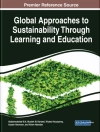Drawing on unique research and rich data on cross-border practices, this book offers an empirically-based view on Europeans’ interconnections in everyday life. It looks at the ways in which EU residents have been getting closer across national frontiers: in their everyday experiences of foreign countries – work, travel, personal networks – but also their knowledge, consumption of foreign products, and attitudes towards foreign culture.
These evolving European dimensions have been enabled by the EU-backed legal opening to transnational economic and cultural transactions, while also differing according to national contexts. The book considers how people reconcile their increasing cross-border interconnections and a politically separating Europe of nation states and national interests.
Table of Content
Introduction. Social transnationalism in an unsettled continent ~ Favell and Recchi
Cartographies of social transnationalism ~ Savage, Cunningham, Reimer and Favell
The social structure of transnational practices ~ Salamońska and Recchi
Cultural boundaries and transnational consumption patterns ~ Hanquinet and Savage
Social transnationalism and supranational identifications ~ Pötzschke and Braun
Explaining supranational solidarity ~ Díez Medrano, Ciornei and Apaydin
Narratives and varieties of everyday transnationalism ~ Favell, Solgaard Jensen and Reimer
Understanding Romanians’ cross-border mobility in Europe: movers, stayers and returnees ~ Barbulescu, Ciornei and Varela
Transnational Turkey: the everyday transnationalism and diversity of Turkish populations in Europe ~ Duru, Favell and Varela
Epilogue. Is social transnationalism fusing European societies into one? ~ Recchi
Methodological appendix ~ Pötzschke, Braun, Ciornei and Apaydin
About the author
Albert Varela is a Lecturer in Quantitative Methods in the School of Sociology and Social Policy and the Q-Step Centre at the University of Leeds.












